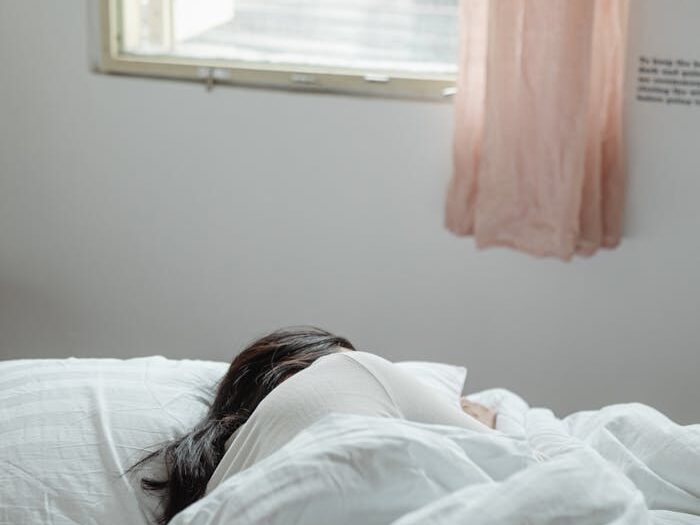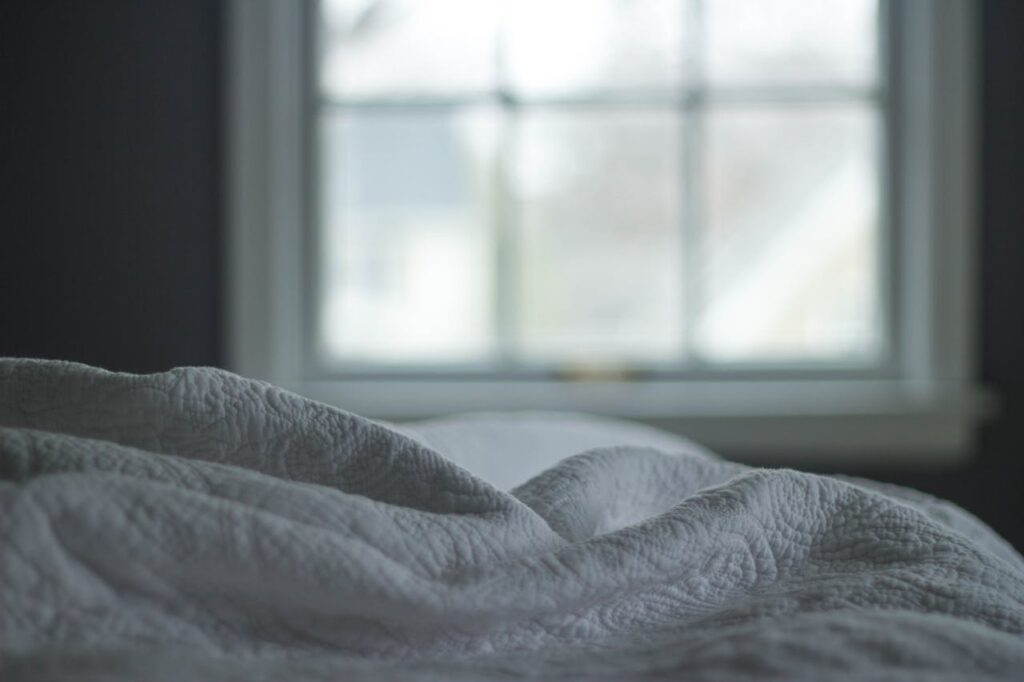6 Reasons Why You’re Having Trouble Sleeping During Perimenopause and What to Do About it


Women often experience sleep problems during perimenopause due to a variete of physiological, hormonal, and psychological changes. According to the massive Study of Women’s Health Across the Nation (SWAN) 47 percent of perimenopausal women, and up to 60 percent of postmenopausal women don’t get enough sleep during the night. What are the reasons?
1. Hormonal Fluctuations
The levels of estrogen and progesterone, hormones that regulate the menstrual cycle, fluctuate significantly during perimenopause. Estrogen helps to regulate sleep patterns and body temperature, and its decline can lead to night sweats and hot flashes, which disrupt sleep. Progesterone has a sleep-inducing effect, so lower levels can make it harder to fall and stay asleep
2. Hot Flashes and Night Sweats
These are common symptoms of perimenopause that can cause sudden feelings of intense heat and sweating, often occuring at night and disrupting sleep.
3. Mood Changes
Hormonal changes can also affect neurotransmitters in the brain, leading to mood swings, anxiety, and depression. These psychological factors can contribute to difficulty falling asleep or staying asleep.
4. Sleep Disorders
Perimenopausal women are at an increased risk of developing sleep disorders such as insomnia, sleep apnea, and restless legs syndrome.
5. Lifestyle Factors
Stress, poor sleep habits, lack of exercise, and dietary choices can exacerbate sleep problems during perimenopause.
6. Physical Symptoms
Other physical symptoms such as joint pain, headaches, and frequent urination can also interfere with sleep.
11 Ways to Improve Your Sleep During Perimenopause

Managing these sleep problems often requires a combination of lifestyle changes, stress management, and sometimes medical treatment to address the underlying hormonal imbalances and symptoms. Here are some strategies that can help:
1. Maintain a Regular Sleep Schedule
Go to bed and wake up at the same time every day, even on weekends, to regulate your body’s internal clock. We’re creatures of habit and by having a regular sleep schedule your body expects to go to bed and get up at a certain time.
2. Create a Sleep-Friendly Environment
Ensure your bedroom is cool, dark, and quiet. Use comfortable bedding and consider using earplugs, a sleep mask or a white noise machine to block out disturbances.
3. Practice Good Sleep Hygiene
Avoid stimulants like caffeine and nicotine, especially in the afternoon and evening and limit your alcohol consumption as it can disrupt your hormones and your sleep. No screen time an hour before bedtime is very beneficial too (working on that one!).
4. Manage Stress and Anxiety
Anxiety and stress has for sure kept me up at night in the past. Techniques such as mindfulness, meditation, deep breathing exercises, and yoga can help reduce stress and promote relaxation before bedtime if you do them on a regular basis.
5. Stay Physically Active
Regular exercise can not only improve your mood and overall wellbeing, but also your sleep quality. Aim for at least 30 minutes of moderate activity most days, but avoid vigorous exercise close to bedtime.
6. Monitor Your Diet
Eat a balanced diet and avoid heavy or very spicy meals before bedtime. Consider foods rich in magnesium and calcium, which can promote sleep. Or take a good magnesium supplement before bedtime.
7. Consider Herbal Remedies
Supplements such as melatonin, valerian root, chamomille and passion flower can help some women improve sleep. Always consult a healthcare provider before starting a new supplement.
8. Hormonal Replacement Therapy (HRT)
For some women, HRT can help balance hormone levels and alleviate symptoms such as hot flashes and night sweats. There has been a lot of buzz in the last few years about HRT, but don’t let that make you shy away from this option. Discuss your individual risks and benefits with your doctor. You don’t have to suffer through perimenopause!
9. Cognitive Behavioral Therapy for Insomnia (CBT-I)
This type of therapy helps change thoughts and bahaviors that contribute to sleep problems and is effective for many women.
11. Medication
In some cases, a healthcare provider might prescribe medication to help with sleep. This can include short-term use of sleep aids or medications that addresses specific symptoms like anxiety or depression. If you think anxiety or depression is interfering with your sleep, please don’t hesitate to get help. Talk to your doctor or check out telemedicine options like For Hers or get matched with an online therapist from Better Help from the comfort of your home.
12. Stay Hydrated
Drink plenty of water throughout the day but limit fluid intake in the evening to reduce nighttime awakenings.
Finding the right combination of stretegies that work for you often requires some trial and error. We’re all different, and what works for me might not work for you and vice versa. Consulting with a healthcare provider you trust and who provides you with different options can help tailor a plan that’s best suited to your specific needs and symptoms.
